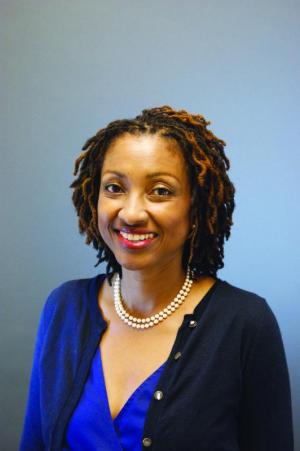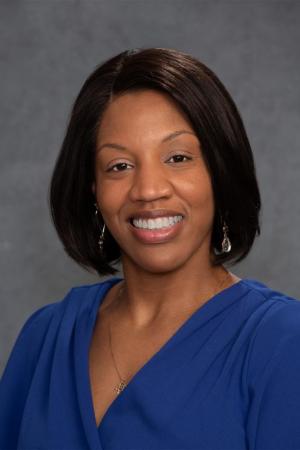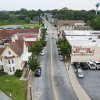By Cindy Bo Lead, Odett Stanley-Brown, Lt. Gov. Bethany Hall-Long, & Cassandra Codes-Johnson
On Dec. 14, 2020, as the toll from COVID-19 surpassed 300,000 deaths in the U.S., the distribution of vaccines began across the country. For many, the vaccine’s arrival was met with hope and enthusiasm, while others reacted with fear and uncertainty. Plans to engage all members of the community and distribute the vaccine equitably are critical to our achieving a post-pandemic society. Vaccinating people saves lives but also requires trust, education and equity. We have to get this right!
The COVID-19 pandemic has disproportionately impacted minoritized communities in the U.S. The Centers for Disease Control and Prevention reports more significant disease and 20 percent higher mortality rates from COVID among Black and Indigenous People of Color. This difference has led several healthcare and government officials to consider the BIPOC community a vaccination priority, although the community itself has mixed feelings about receiving the vaccine. For this reason, a three-step process for COVID-19 vaccinations is needed to address the BIPOC community’s appropriate skepticism and uncertainty.
The first step involves a willingness to acknowledge the painful history of racial injustice in the U.S. healthcare system as well as present-day racial and ethnic health disparities. Well-documented mistreatment of Black people in harmful experimental trials, such as Tuskegee, has fueled this mistrust. Data from the 2018-19 flu season indicate that about 40 percent of Black, Hispanic and Asian Americans got a flu vaccine compared to 50 percent of white Americans. The data also show that 64 percent of Black children 19 to 35 months of age were fully immunized versus 72 percent of non-Hispanic white children. These facts lay the groundwork for the second phase of vaccine education and equity planning.
Step two involves a process for listening to and planning with the BIPOC community and their trusted representatives to address their needs and concerns. A Pew Charitable Trust Poll revealed that 71 percent of Blacks surveyed said they knew someone who had been sick or died from COVID, yet only 42 percent said they would take the vaccine. There may be many reasons for this.
We cannot assume it is all related to mistrust of the vaccine or healthcare or government organizations. Reasons may also include circulation of misinformation on the science of vaccines as well as very practical matters. For example, there could be challenges of taking time off from work, arranging childcare or relying on public transportation to get to a free vaccination location, currently a two-dose process with Pfizer-BioNTech and Moderna vaccines. Considering these practical matters is especially important as Black and Brown persons are essential to our economy’s livelihood.
We understand there are widespread concerns regarding the speed of vaccine development even beyond the BIPOC community. Both the Phizer-BioNTech and Moderna vaccines underwent extensive clinical trials to ensure they were safe and effective.
While this process occurred very quickly, no steps were skipped by the U.S. Food and Drug Administration. The FDA underwent its standard approval process and invested the resources necessary to conduct this quickly given the substantial deaths and illnesses related to COVID-19. We are committed to improving education about vaccine clinical trial participation, which did include thousands of volunteers from the BIPOC community. Their willingness to volunteer for these trials was critically important given the significant impact the virus had had on people in these communities.
Going forward, clear communication about who in the community will receive the vaccine first, when and where is needed. Healthcare professionals in the community, including pediatricians and family medicine physicians, should build upon their existing relationships in order to respond to concerns, and involve other trusted resources, such as infectious disease experts, government officials, and the media. Additionally, active listening sessions are needed to responsibly modify the approach to BIPOC communities, so they feel valued and respected by our institutions.
The third step involves authentic connection with communities of color to increase vaccinations and ongoing COVID prevention measures. The resolution of the COVID-19 pandemic rests on the equitable distribution of vaccines as well as providing ongoing support to the BIPOC community. We must seek to understand the needs of these communities and support Black and Brown individuals in accessing the resources they need to keep themselves and their families safe.
Relief efforts such as food drives, distribution of masks and sanitizer with mental health resources must continue. COVID-19 is highlighting the longstanding racial health disparities we must address by examining social determinants of health, such as equitable work and housing conditions, and dealing with structural racism. Listening forums and tracking methods must become standard for capturing ongoing concerns and offering data-informed feedback that will lead to community level partnerships focused on solutions-oriented approaches.
Healthcare providers, public health and government leaders can help to shift the healthcare experiences and outcomes of the BIPOC community. We must remain constantly aware of the racist actions historically committed by these same entities and address care in a culturally respectful manner. We must intentionally listen to the concerns of our vulnerable populations, who don’t share the same access and privileges of their White counterparts. And we must leverage our existing relationships with these communities to appropriately educate and address head on the barriers that stand in the way of an equitable end to this pandemic. This is our call to action to ensure equitable access for everyone who chooses to vaccinate!
Learn more about available COVID vaccines at de.gov/covidvaccine. Email vaccine specific questions to vaccine@delaware.gov or call the Division of Public Health vaccine call center at 302-672-6150.
For more general information on the coronavirus, please visit: https://coronavirus.delaware.gov/.
For those with specific health-related questions, email us at DPHCall@delaware.gov. Individuals with general questions about coronavirus can call 2-1-1 or text your ZIP code to 898-211 for deaf or hard of hearing.
Cindy Bo Lead, Enterprise D.R.I.V.E. (Diversity, Anti-Racism, Inclusion, Value, Equity) Strategy and Task Force, is senior vice president, Delaware Valley Strategy and Business Development at Nemours Children’s Health System. Odett Stanley-Brown, MD, pediatrician is a Core Team Member, DRIVE Steering Committee, chair, Diversity and Inclusion Committee at Nemours Children’s Health System. Lt. Gov. Bethany Hall-Long, PhD, RNC, FAAN, is professor of nursing and joint faculty in urban affairs at the University of Delaware. Cassandra Codes-Johnson, MPA, is associate deputy director, Delaware Division of Public Health.























































